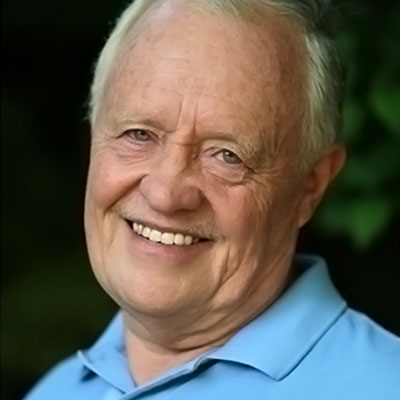The stresses of life may make us all susceptible to the occasional restless night from time to time. We lose sleep over stress & anxiety, heartache & regret. Sometimes an illness is to blame and at other times we find ourselves brimming with excitement for the day to come.
But for 1 in 10 people, insomnia is an ongoing struggle that affects every aspect of a person’s life, sapping their energy, making it difficult to concentrate, and making them feel irritable, frustrated and downright exhausted.
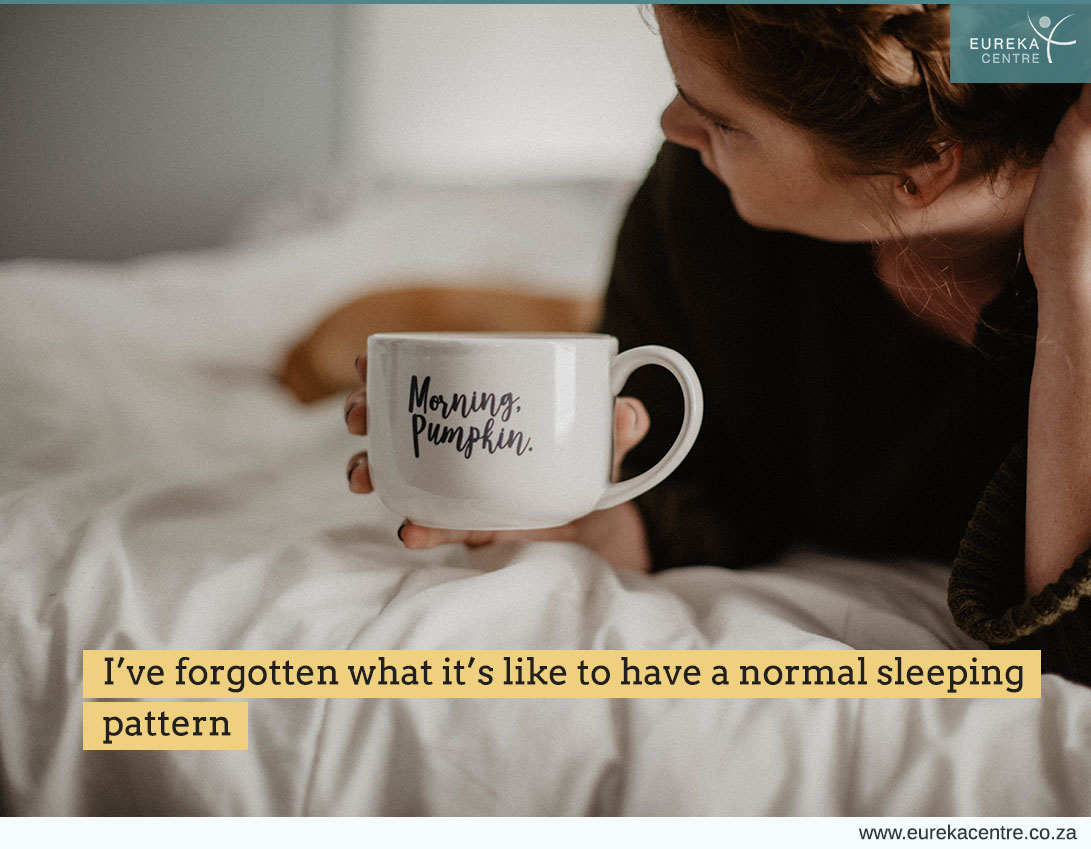
A cruel & vicious cycle
Insomnia, if left unchecked, could become a conditioned or habitual chronic insomnia, and whatever the original cause of the insomnia may be, the insomnia often gives rise to worry over not getting enough sleep, and a vicious cycle develops in which this worry itself becomes the main source of insomnia.
“There does appear to be a circular relationship between sleep health and mental health,” says Dr David Neubauer, MD, associate professor of psychiatry and behavioural sciences at Johns Hopkins School of Medicine. “Worse sleep can have a negative impact on mental health, and vice versa. Some start off with insomnia that develops into depression, while others start off with depression that leads to insomnia.”
It’s estimated that as many as 80% of people diagnosed with depression also have difficulty sleeping.
If you’re a night-owl searching for a solution to this conundrum, you’ve come to the right place.
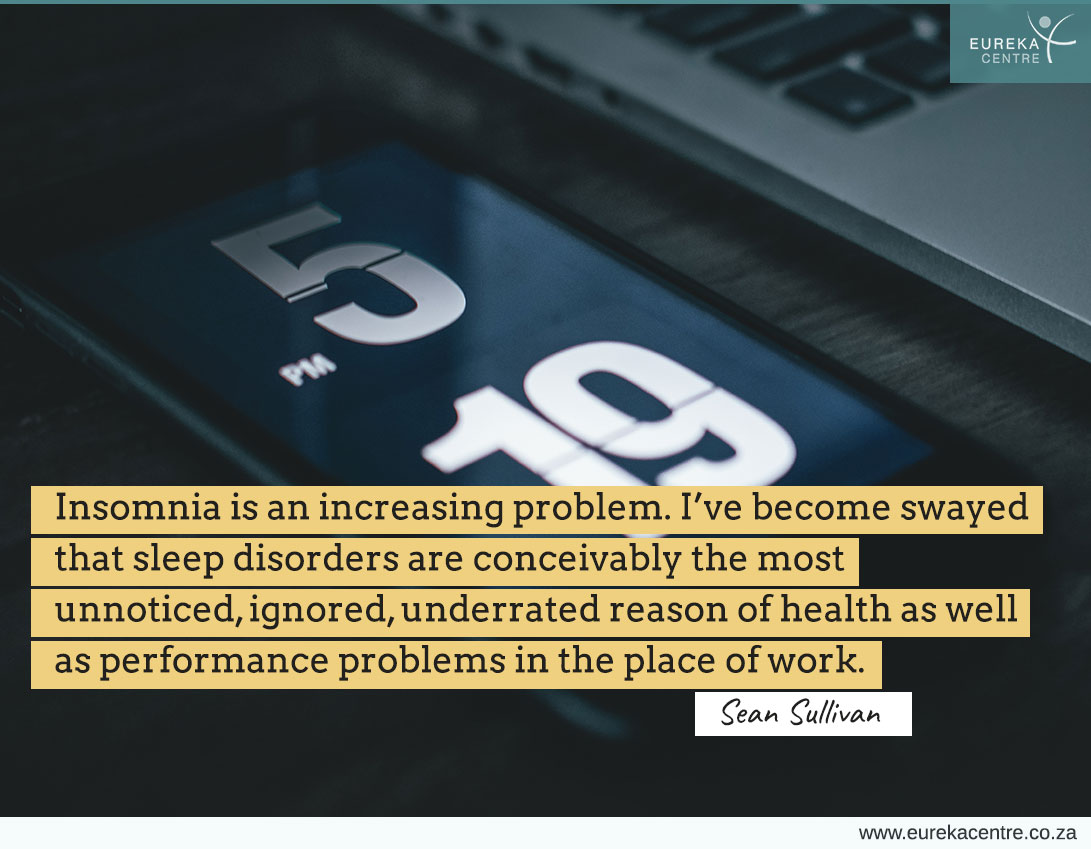
A Case Study
In this article Jeanette Dreyer shares a case study demonstrating the successful treatment of chronic insomnia through the use of hypnotherapy and explores the body mind connection.
This story is shared with permission of the patient, but we have chosen to keep the patient’s name anonymous to protect her identity.
Jeanette Dreyer is a psychologist and hypnotherapist with +21 years of experience in hypnotherapy. She has helped countless people break the vicious cycle of insomnia and discover restful & restorative sleep.
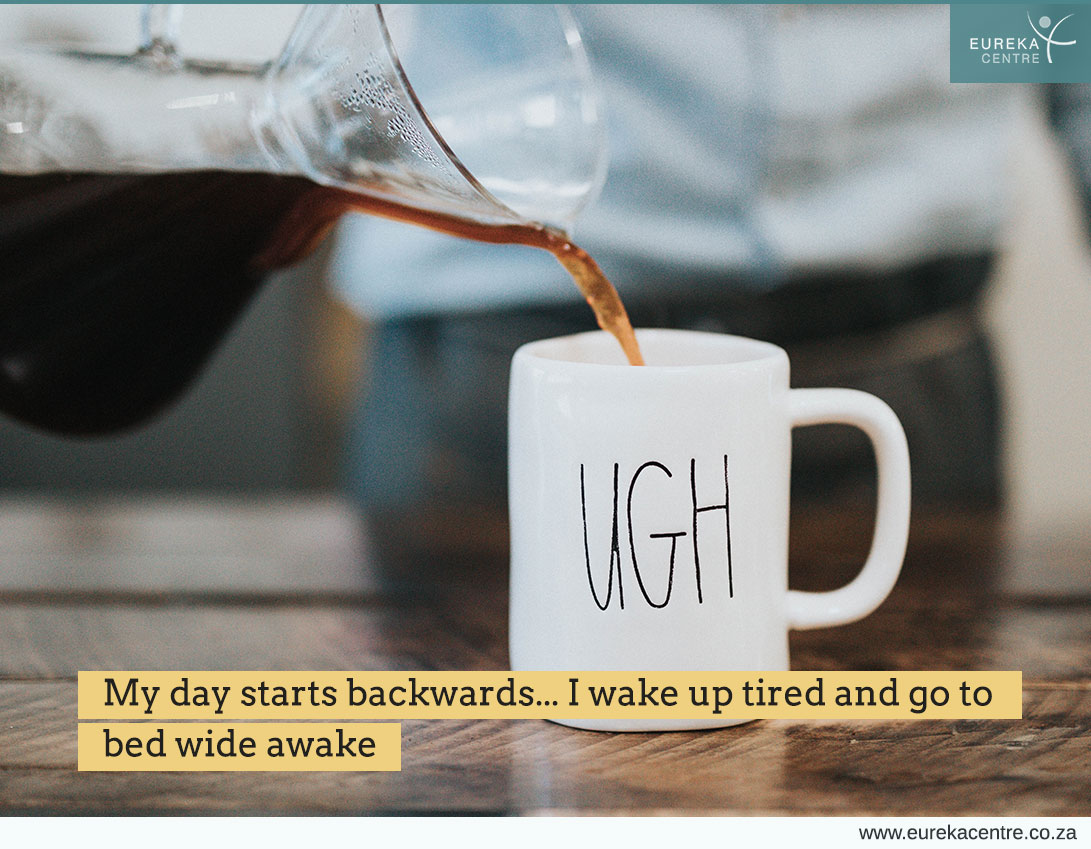
The Natural Sleep Cycle
Healthy sleep consists of different stages of sleep that progress cyclically throughout the night. A sleep cycle can last roughly 90 – 120 minutes and most people have about four to five sleep cycles in a night.
NREM Stage 1
Stage 1 is light sleep where you drift in and out of consciousness and can be awakened easily. If a person is awakened at this stage, they will often claim they were not asleep. Many people experience hypnic jerk during this phase; a falling sensation followed by sudden muscle contractions that jolt you back into consciousness. People with irregular sleeping habits are more likely to experience these hypnic jerks more often.
NREM Stage 2 (light sleep)
Almost half of time asleep is spent in stage 2. Heart rate slows and the core body temperature begins to drop. Brain waves slow down and blood pressure decreases as your body prepares to enter deep sleep.
NREM Stage 3 – Deep Sleep
This slow-wave sleep or delta sleep is the most restorative phase of sleep, when blood pressure drops & breathing becomes deeper. Blood flow to the muscles increases, and the body releases hormones that repair & replenish muscle tissue and boosts immune function. The body also releases appetite controlling hormones to limit feelings of excessive hunger during the next day.
REM Stage 4 – REM (Rapid Eye Movement) Sleep
During REM sleep, brain waves look very similar to how they behave when we are awake, and most dreams occur in this state. Breathing becomes more shallow and irregular and eyes move rapidly in all directions.
Waking up briefly from sleep is part of a normal sleep pattern and usually happens during lighter stages of sleep. But as we grow older, the normal sleep cycle becomes shorter, and we spend less time in deep sleep and more time awake in between sleep cycles.
The amount of sleep we need also varies with age as well as from person to person. Some people simply need more than 10 hours of sleep to feel refreshed, while others require as little as 5 hours.
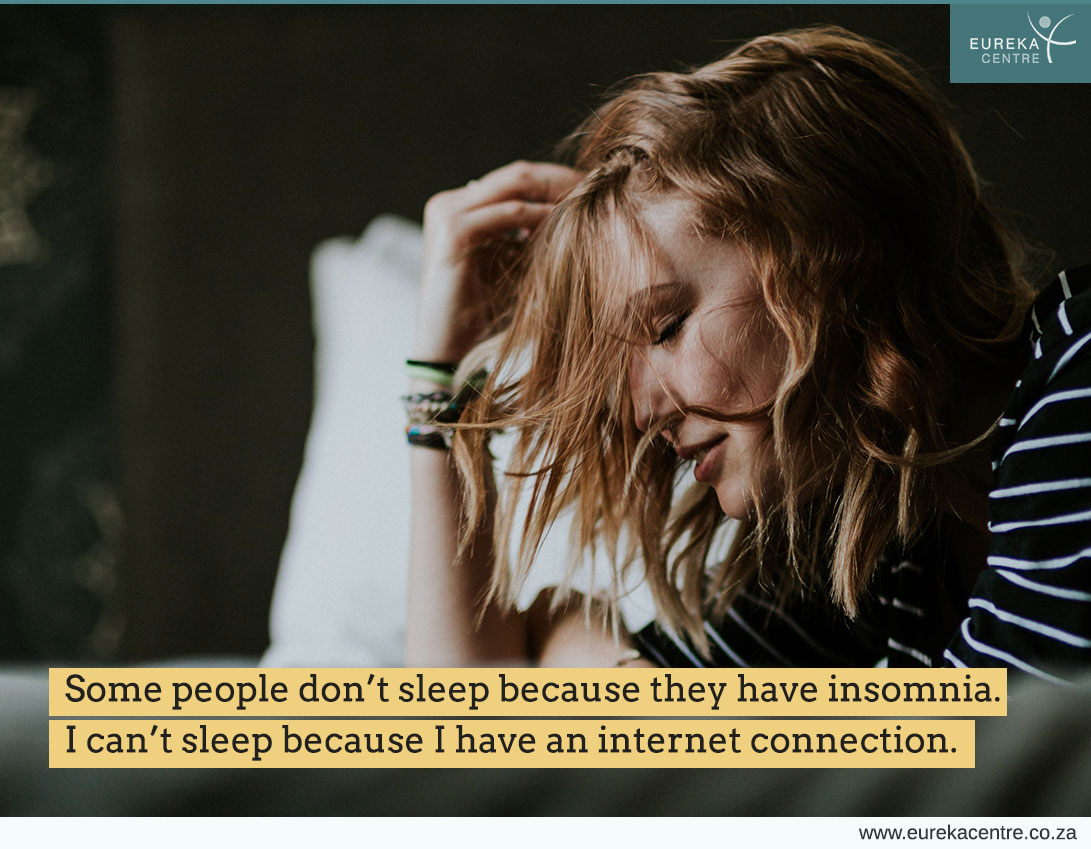
Insomnia, An increasing Problem?
People today sleep 20% less than they did a century ago. Back in the 1800’s, before the invention of electric lighting, our great-great grandparents would retire to bed shortly after dusk for their “first sleep”, wake up a few hours later for 1 – 2 hours of quiet reflection and then return to sleep, their “second sleep” until the dawn.
100 years later, the picture couldn’t be more different, with long work hours, the constant stream of information, stressful lives and busy schedules robbing us of the ability to unwind and switch off our brains when it’s time for sleep.
Some reports say more than half of us are regularly losing sleep due to anxiety.
If you’re burning the candle at both ends, or if you don’t stick to a bedtime routine you may find yourself having trouble falling asleep or sleeping through the night.
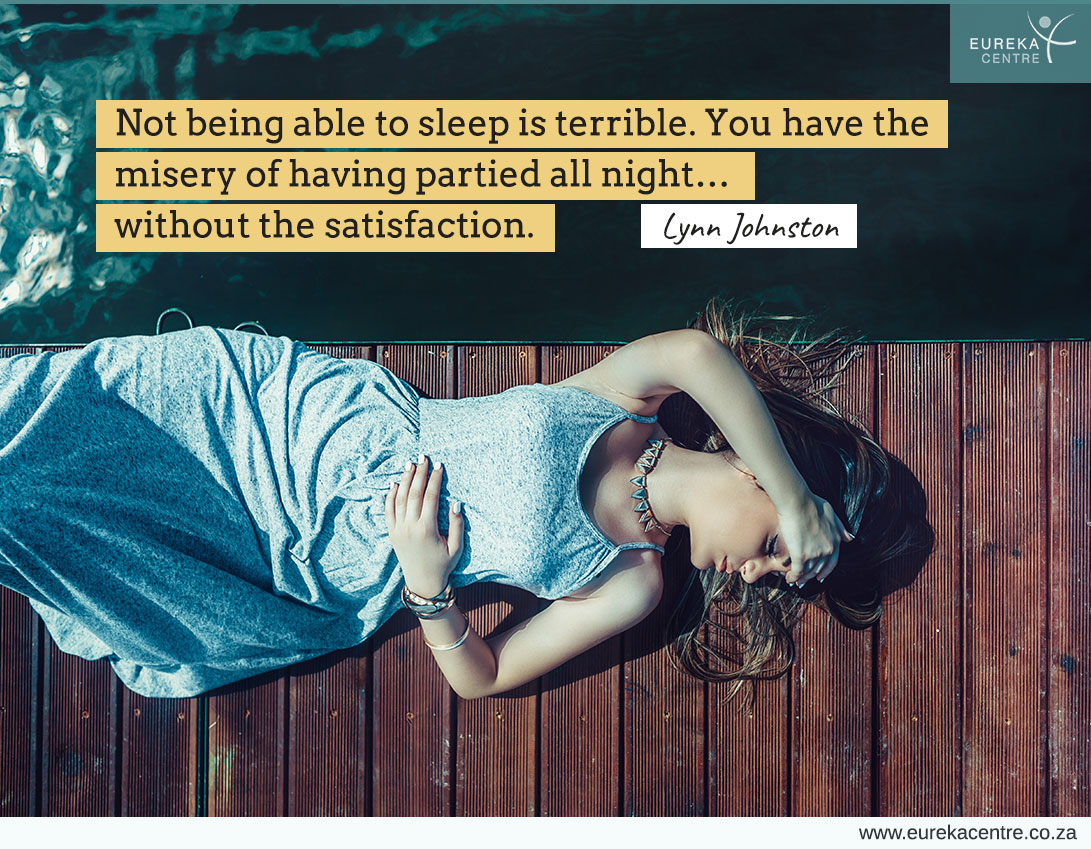
People with insomnia may have difficulty with:
INITIATING ASLEEP
“It takes me longer than 30 minutes to fall asleep”
“I hate people who can go to sleep as soon as they close their eyes. Like, that takes me 4 hours, 600 position changes and a sacrifice to the sleep gods”
STAYING ASLEEP OR MAINTAINING SLEEP
“I fall asleep easily enough, but then I wake up in the night, and I lie awake for what feels like forever”
EARLY WAKING
“It’s too early to get up, but it’s too late to get back to sleep”
FEELING TIRED UPON WAKING
“Nothing cures insomnia like the realisation that it’s time to get up”
FATIGUE OR DAYTIME SLEEPINESS
“Due to tonight’s lack of sleep, tomorrow is cancelled”
POOR CONCENTRATION
“It’s hard to focus on my tasks for the day, if I even have the motivation to do them at all.”
MOOD CHANGES
“My mood is somewhere between grey and unbearable.”
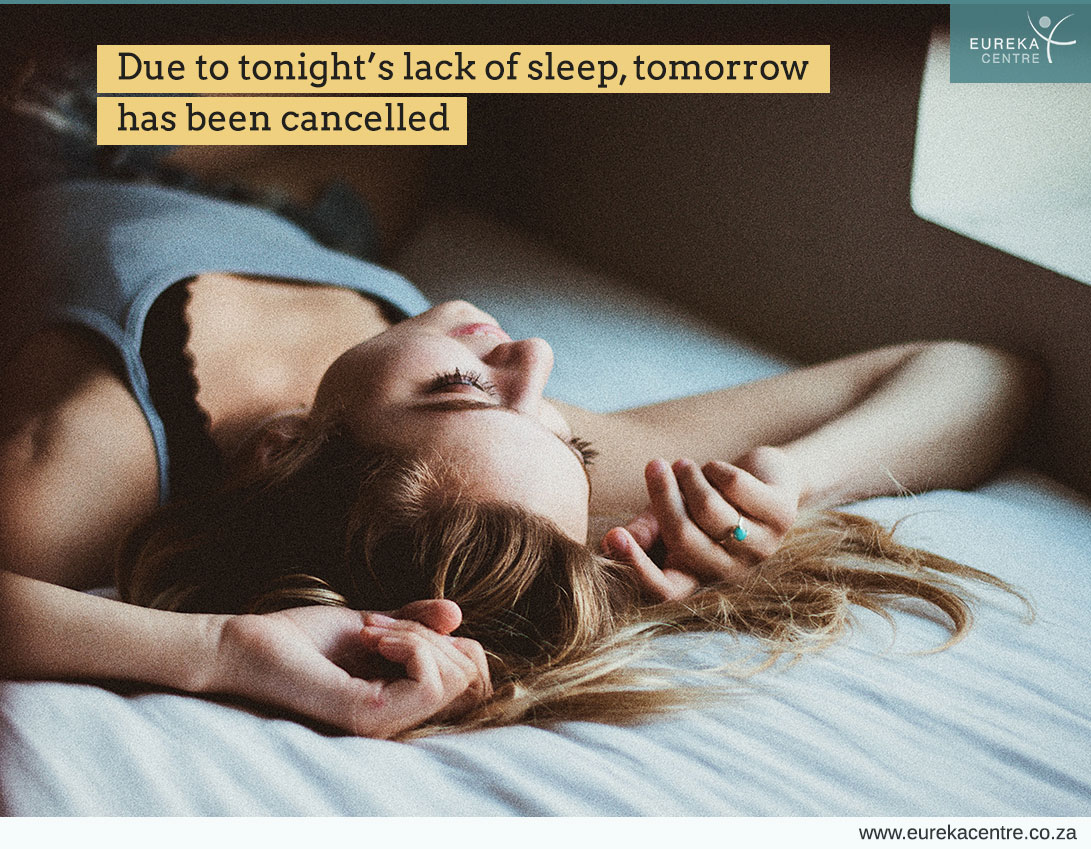
Sleep and it’s affect on Health
Insomnia affects people from all walks of life.
A lack of quality sleep can lead to long-term health problems, increasing your risk of depression, weight gain, type 2 diabetes, high blood pressure, and heart disease.
If you are already dealing with persistent insomnia, you already know the impact that it has on your motivation, concentration, your memory, your mood and your overall health.
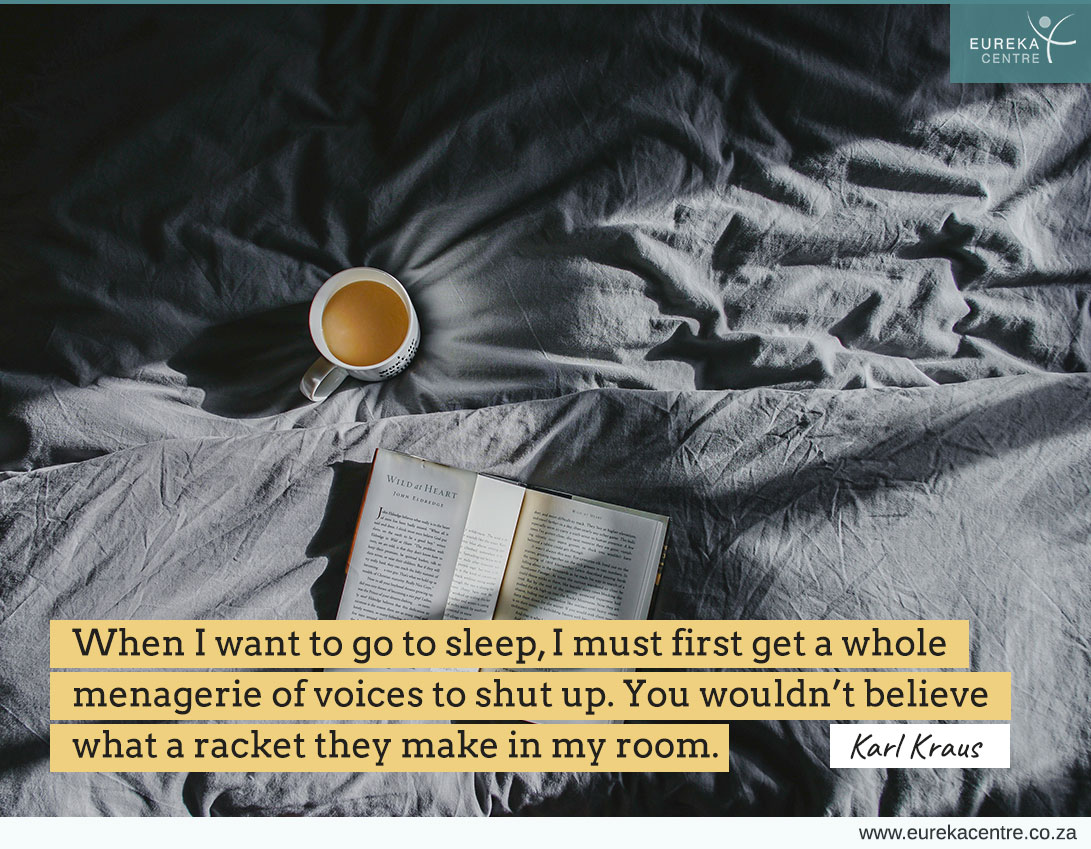
There are three kinds of insomnia
Transient / Short-Term Insomnia
Short-Term Insomnia can last several days and is usually caused by a short-term disturbance in your usual sleep routine, relating to:
- An unfamiliar sleep environment
- Situational anxiety or stress
- Pain or Illness
- Jet Lag
- Shift Work & late nights
- An excess of caffeine or alcohol
- Poor sleep hygiene
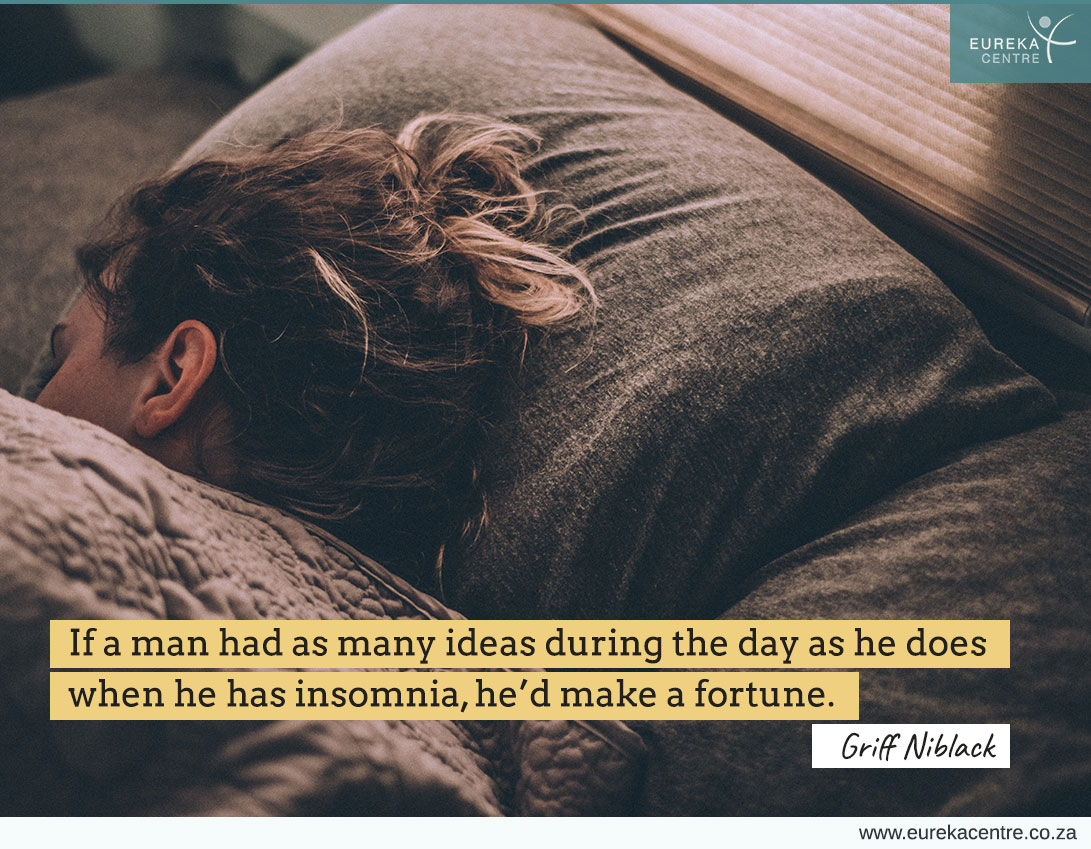
The typical light-hearted tips & tricks given by glossy magazines are usually aimed at treating transient insomnia. They often do help one to relax and drift off to sleep in the case of mild transient insomnia.
- Take a warm bath scented with lavender oil.
- Drink a soothing herbal tea or a glass of milk.
- Avoid coffee and chocolate, especially at night.
- Avoid large meals within 2 hours of bedtime.
- Keep your room quiet and dark.
- Get some fresh air.
- Do some vigorous exercise during the day or go for a walk.
- Listen to calming music before bed.
- Keep work out of the bedroom.
- Relax and Breathe deeply.
- Write down your thoughts to get them out of your head.
- Do some calming yoga or meditation.
- Keep electronic devices such as cellphones & laptops out of the bedroom.
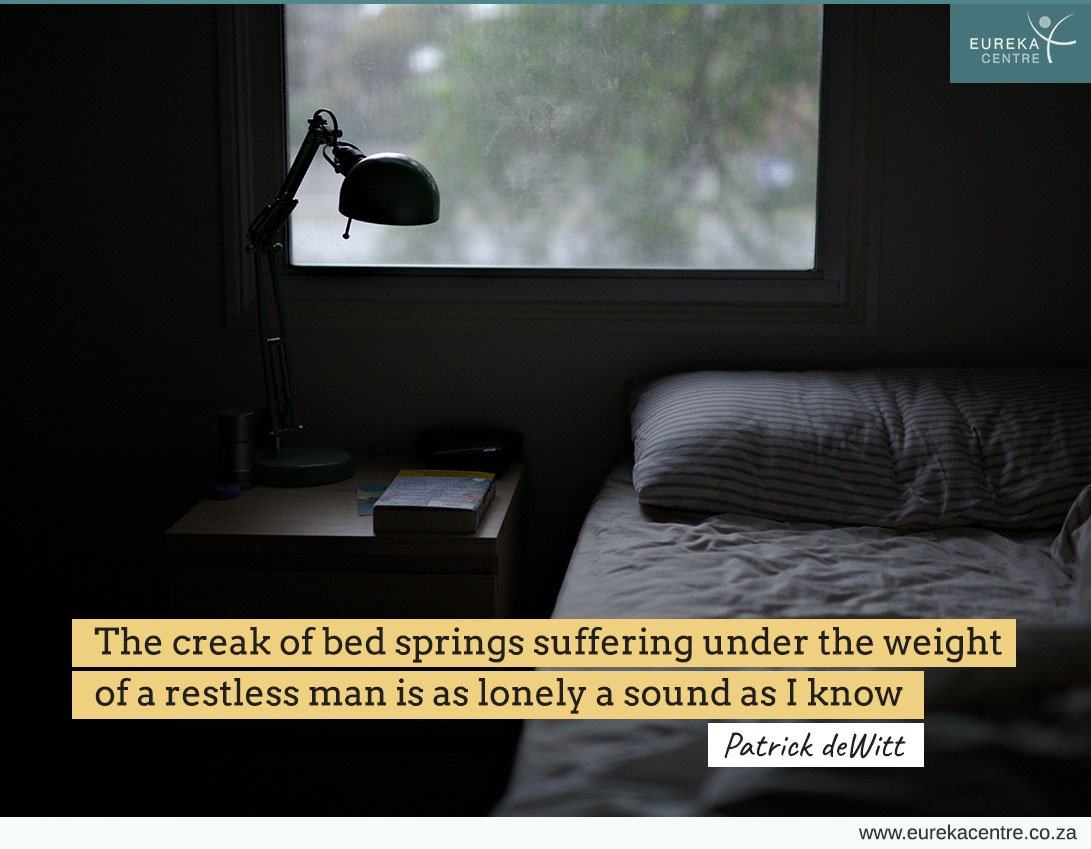
Acute Insomnia
Acute insomnia usually lasts less than 3 months and may develop after a traumatic event e.g. a car accident, an armed robbery or the death of a loved one.
- Significant life stress, such as job loss, the death of a loved one, divorce
- An illness or chronic pain, or uncomfortable issues such as acid reflux or restless legs syndrome
- Emotional or physical discomfort
- Financial difficulties
- Fear of falling victim to crime
- Environmental factors that interfere with sleep, such as noise, light, or room temperature.
- Some medications are known to interfere with sleep
- Interferences in the normal routine or sleep schedule
- Withdrawal from alcohol or sedating medications
Acute Insomnia can be resolved by short term trauma therapy like EMDR or BWRT.
Chronic Insomnia
Insomnia is called chronic when a person has insomnia at least three nights a week for a month or longer and is the result of a deeper problem that can be identified and solved by means of hypnotherapy.
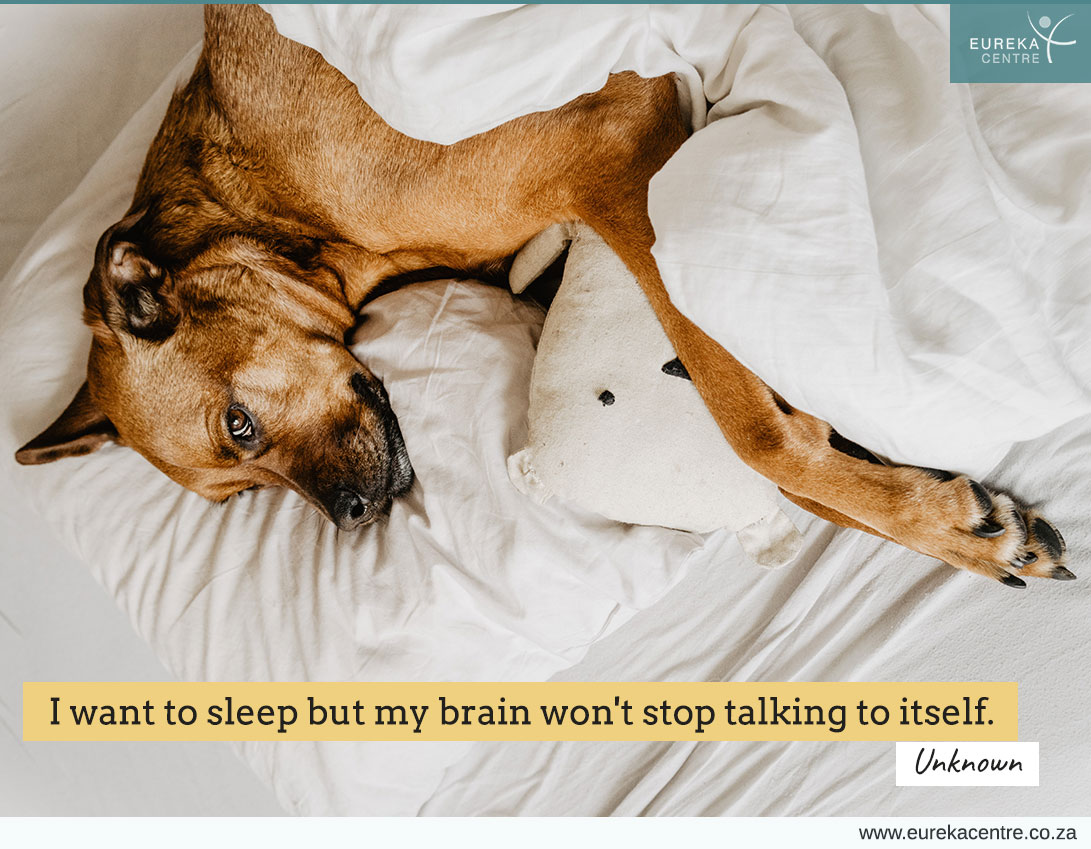
The Mind-Body Connection
To understand the body mind connection, we have to understand that the mind and body are one. Whatever is experienced in the mind is reflected in the body, e.g. feeling anxious or nervous about something can give rise to an upset stomach, tense shoulders or a headache.
This bodymind unity is reflected in our state of wellness and illness. Each state is a means by which the bodymind gives us an indication of what is going on beneath the surface. Understanding these messages is vital in successfully treating physical and emotional problems.
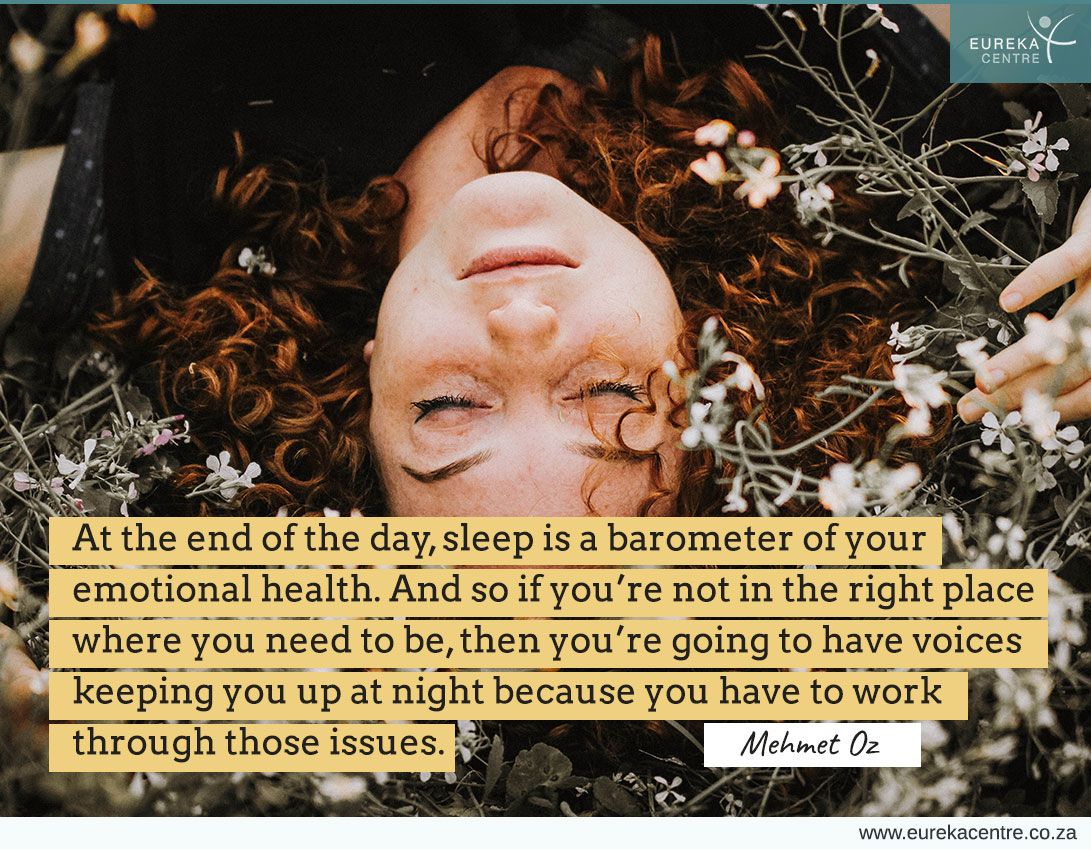
Getting to the Heart of the Matter
The deeper cause of our problems is not easy to find because they are deeply hidden in our subconscious minds. Our childhood is one of the keys to understanding what is happening in our lives now. Childhood trauma stay with us locked up in our subconscious minds, influencing our thoughts feelings and states of mind which in turn are reflected in our bodies.
Insomnia and our survival brain
Insomnia often indicates a deep underlying fear of letting go and surrendering. When we sleep we are in a surrendered and vulnerable state. Lacking the ability to do this indicates chronic tension, fear, anxiety and paranoia.
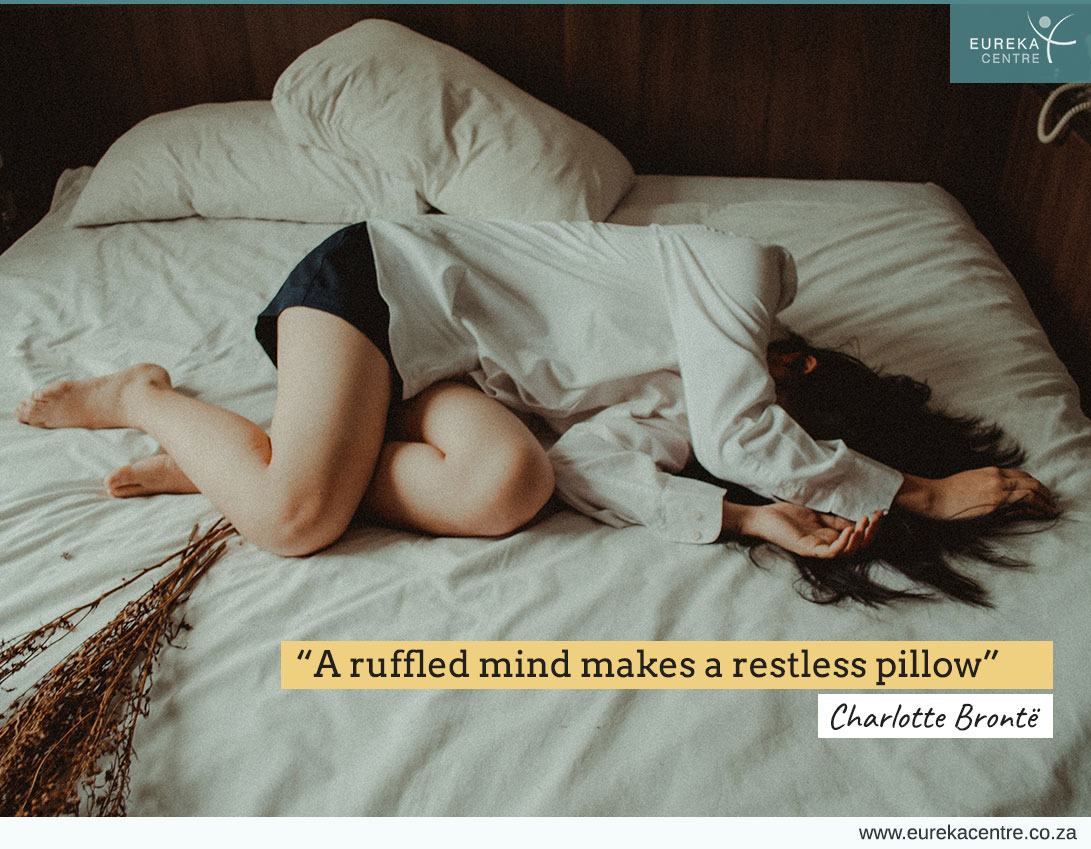
“We feel that our survival is threatened in some way, indicating a severe lack of trust. The thymus gland is closely connected to sleep and in turn the thymus is connected to the energy of the heart. So, insomnia is related to our ability to love ourselves, to trust love and therefore to trust life.” – From the BodyMind Workbook by Debbie Shapiro
The subconscious mind – our survival brain – is designed to protect us by the fight or flight response when our survival is threatened.
It controls our autonomic nervous system – the functioning of our organs. In an attempt to protect us it can create the fight response by the excretion of more adrenalin in order to keep the mind alert so that we are ready to take action to protect ourselves.
This is what causes insomnia. Adrenalin keeps the mind alert so that we can think of ways to deal with the perceived threat instead of calming down and falling asleep.
Case Study
The client, a medical doctor in her late twenties reported an inability to sleep since she could remember.
”I am overanxious, grind my teeth and have muscle pain in my shoulders, neck and jaws. I am irritable all the time and I find it hard to concentrate. I don’t believe in medication because my body reacts negatively to any sleeping pills or pain killers. It effects my ability to concentrate which makes me more anxious.”
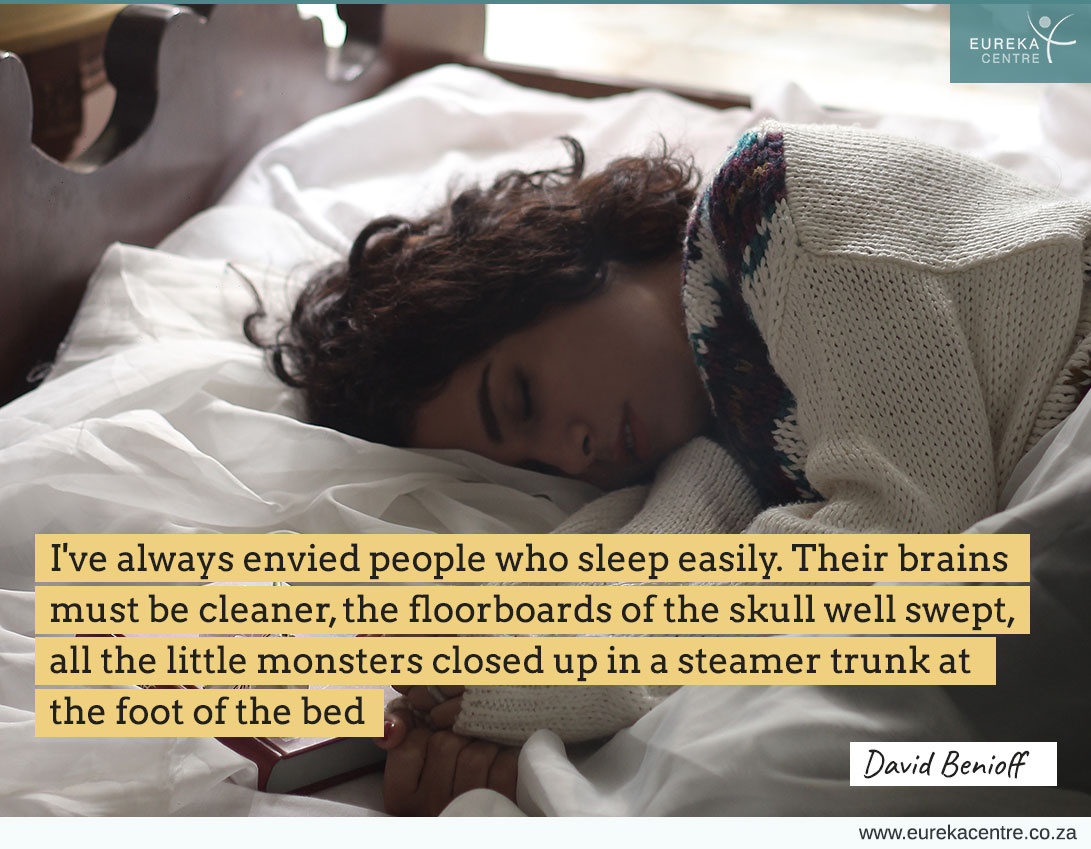
She saw a neurologist and a psychiatrist. They prescribed medication which didn’t work. She stopped all medication as there was no improvement.
When asked about her childhood she reported that she came from a loving home and nothing negative ever happened to her. She just remembers that she had been anxious all her life but had no idea why.
Early Roots
Through a hypno-analysis of her life it became apparent that her anxiety started in utero. Her mother lost a baby born prematurely before her and was very anxious that this might happen again that the baby might die or be disabled or retarded. This caused her to be severely anxious. Her physical survival was at stake as well as her emotional survival. If she would be born disabled she thought she would be rejected.
The subconscious mind caused her to stay awake most of the time in utero in case something might happen so that she could be ready to react appropriately to ensure her survival e.g. in case of a premature birth to try and hold back birth. She could do nothing about the situation and thought she just had to bite on her teeth and grin and bear it until she was born.
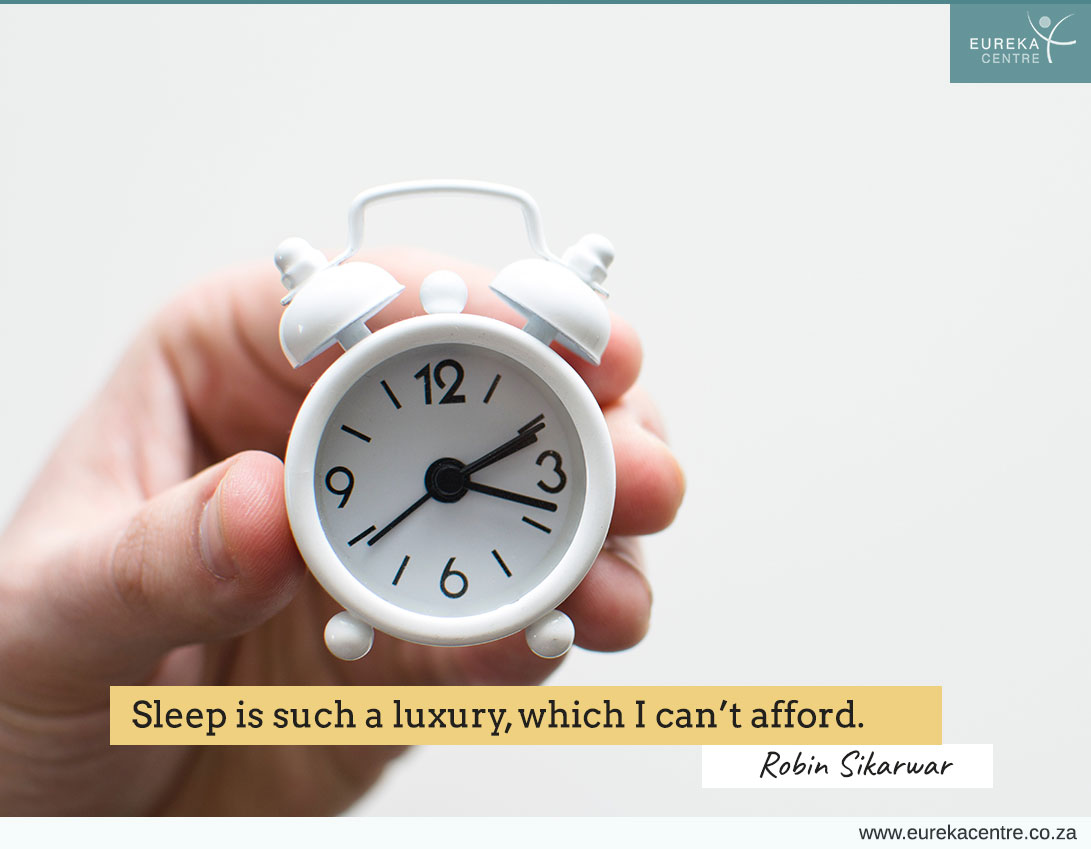
Her dad worked away from home and the mom and baby were often alone at home. Her mom feared burglars and as a result didn’t sleep well. The baby picked it up and it affected her sleeping pattern as the mom is experience by the baby as its source of safety and survival. When the mother feels anxious the baby feels the same.
High Achievers & High Expectations
Her parents had high expectations of her as both were high achievers. This made her feel anxious. She felt she had to live up to these expectations to be loved. Her self-love was based on living up to expectations. Although she had been a top achiever she always had the feeling it wasn’t good enough.
She was busy studying part time to specialise. Her sleeping disorder, long hours of work and studying affected her ability to achieve and she was anxious that her parents would be disappointed if she didn’t realise this dream.
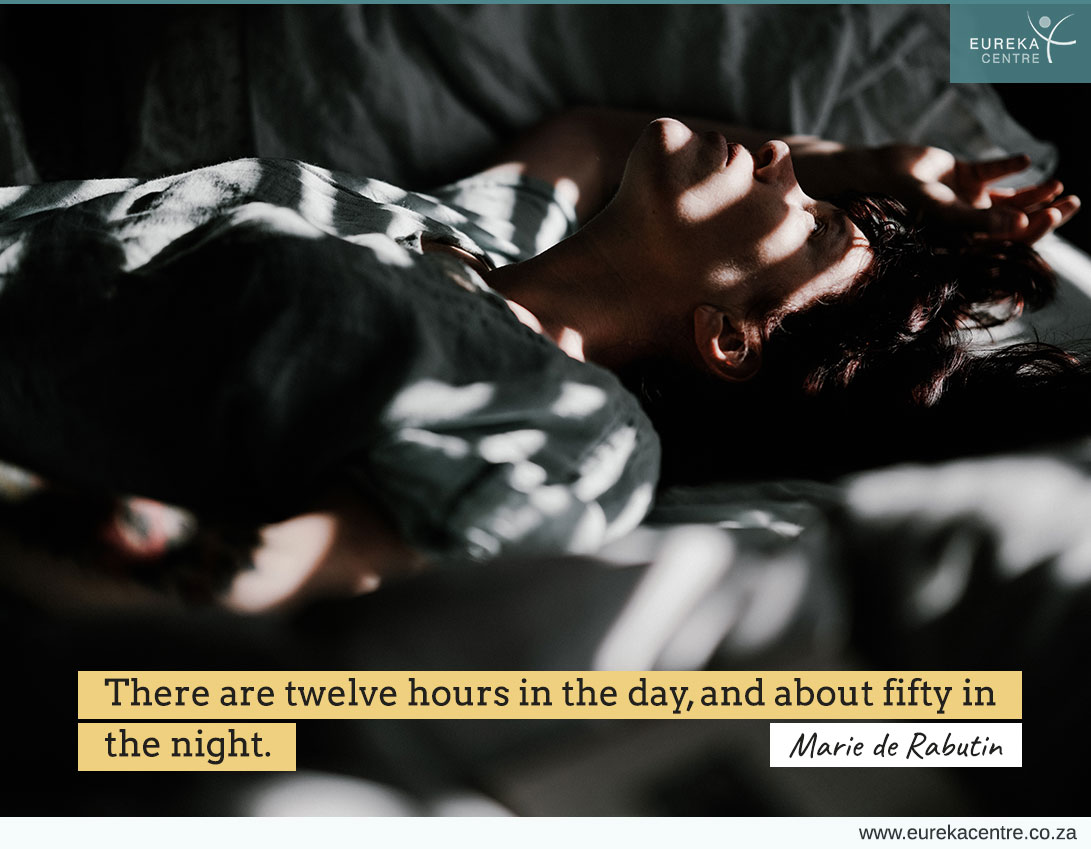
She was also mysteriously scared of a burglary. She would lie awake listening for suspicious sounds. The client was unaware of what caused her insomnia and therefore was unable to deal with it.
Insomnia is always related to the in-utero experience. The subconscious memory is triggered by the similarity of being in the warmth and darkness of your bed at night and the warmth darkness in utero. Since the subconscious has no perception of time and space it perceives as being back in bed at night as being back in utero and then reacts as if you are – keeping you alert to protect yourself. This is called the initial sensitising event causing insomnia.
Finding the Cause
In hypnosis the truth was revealed, and she was lead to realise she was no longer the helpless little baby, that she did survive, was born perfectly normal and no longer needed to protect herself by keeping her mind alert when she needed to sleep.
The subconscious mind has no perception of time and space, it can remember everything since conception, but cannot think logically. When something in our lives happens now it triggers memories of what happened before we had a conscious memory (before the age of 4) and then reacts as if we are in original situation.
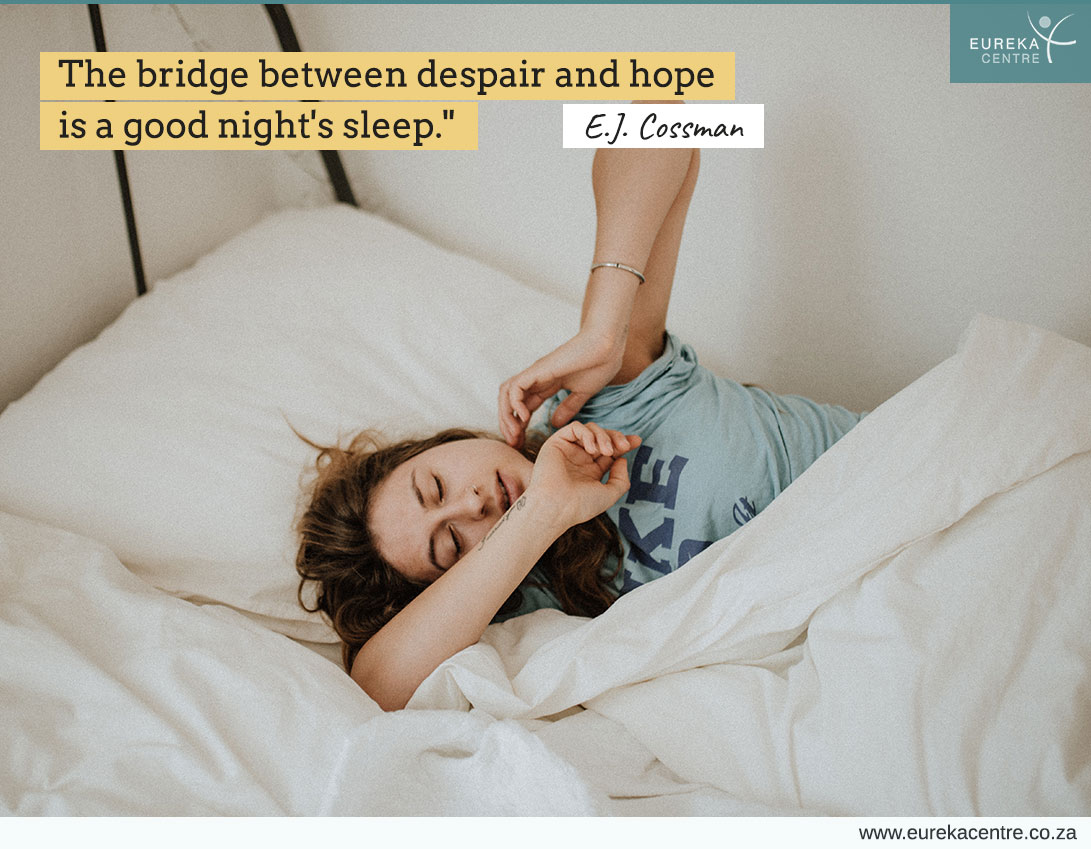
In hypnosis she also came to realise her lying awake listening for suspicious sounds was related to her mom lying awake in fear of burglars when she was a baby and that she no longer needed to protect herself in this way.
She also came to understand that she was good enough and loved by her parents and only must live up to her potential to fulfil herself and not to deserve love.
The first experience after birth which caused insomnia is called the symptom producing event and all the following events thereafter which intensified the symptom is referred to as the symptom intensifying events.
Learning to Let Go
By dealing with all these events in hypnotherapy the client is lead to subconsciously realise time has passed, she survived it all and is now physically and emotionally safe and loved in the here and now. Realising this the subconscious mind was able to let go of the anxiety and allowed the brain to relax and she could fall asleep, realising that the protection mechanism of keeping the brain alert was no longer required.
The client reported gradual improvement in her sleeping pattern and eventually was able to sleep normally.
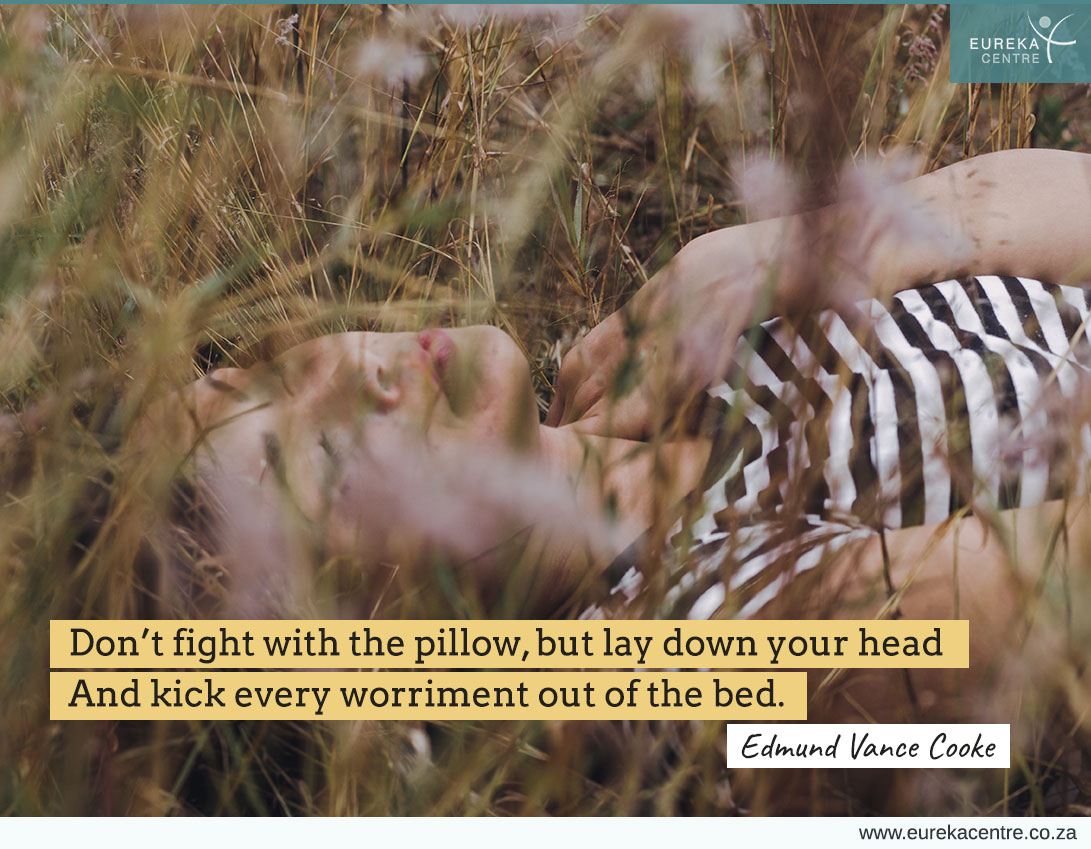
How does hypnotherapy treatment for insomnia work?
Effective treatment of insomnia cannot be done by just giving direct suggestions for sound sleep to the subconscious in a hypnosis session. In hypnotherapy the causes of insomnia need to be identified and treated.
Once the root cause has been identified, negative thought patterns that are lodged deep in the subconscious mind can be substituted with positive ones which leads to restoration of the chemical balance in the brain.
At Eureka Centre we offer treatment for various sleep disorders:
- insomnia symptoms
- chronic insomnia
- insomnia in children
- insomnia in pregnancy
- insomnia in menopause
- stress insomnia
- anxiety insomnia
- insomnia and depression
- familial insomnia
- narcolepsy
- nightmare disorder
- sleep terror disorder
- sleepwalking disorder
Are you suffering with insomnia?
Make an appointment today and say goodnight to insomnia.

At Eureka Centre we have a very experienced and gifted hypnotherapy counsellor, Jeanette Dreyer, who achieves excellent results, and we have many satisfied clients. However, we cannot guarantee the results in any case. Your results may vary and every situation is different.
References:
- Melinda Jackson, Senior Research Fellow in the School of Health and Biomedical Sciences, RMIT University and Siobhan Banks, Senior Research Fellow
- Centre for Sleep Research, University of South Australia.
- Dr David Neubauer, MD, associate professor of psychiatry and behavioural sciences at Johns Hopkins School of Medicine.
- Brandon Peters, MD Double board-certified neurologist and sleep medicine specialist practicing at Virginia Mason Medical Center in Seattle
- “The BodyMind Workbook” – Exploring how the body & mind work together” by Debbie Shapiro













